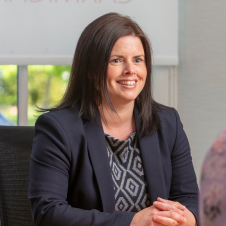The coronavirus epidemic is hitting all businesses hard, but the self-employed are understandably feeling vulnerable and exposed at the moment. We want you to know you're not alone. We're here for you.
In this section we endeavour to keep you updated with guidance as it's issued and practical steps you can take for your business.
Guidance and practical steps:
- HM Government - find out more and apply for business support
- Support for start-ups
- Self-employment Income Support Scheme - updated guidance 14 April 2020
- An overview of all other measures available
- Fishing sector support
- Advice for employers - you might also find useful advice in this section, even if you are self-employed
- Corporate Tax - a message for our clients and also steps and guidance for all
- IR35 delayed until 2021 - an update on what this means for you
- Employees abroad - an update about the restrictions and tax implications of global people mobility
- Director responsibilities - our teams are here to help you navigate and fulfill your director responsibilities
Support for start-ups
The Government announced £1.25 billion in support for start-up companies on Monday 20 April. The Government has recognised the crucial role entrepreneurial businesses will play in helping the UK to recover after the coronavirus crisis. We've summarised the initial guidance in our blog here.
Self-employment Income Support Scheme
Chancellor Rishi Sunak announced on 26 March the Self-employment Income Support Scheme (SEISS), a much-anticipated and very welcome lifeline of support, from which 95% of self-employed people will be able to benefit. Initially guidance was quite high level, with more detail provided on the scheme on 14 April.
From 4 May 2020 the Government will begin contacting those who may be eligible. HMRC is also inviting people to go online and check their eligibility for SEISS. It's advised to have your unique taxpayer reference (UTR) and national insurance number to hand.
Once the online check is complete, eligible customers will be given a date which they can submit their claims. Claims will be open from 13 May. They will be simple to process and those eligible will have the money paid into their bank accounts by 25 May or within six working days of their application.
First grant deadline
The deadline for applying for your first grant under SEISS is Monday 13 July. A reminder that under the first grant, eligible individuals can claim a taxable grant worth 80% of their average monthly trading profits, paid out in a single instalment covering three months’ worth of profits, and capped at £7,500 in total. Those eligible have the money paid into their bank account within six working days of completing a claim.
Second grant
On 29 May the chancellor announced the scheme would be extended to allow a second round of grants. Applications for the second grant will open in August (date TBC). Individuals will be able to claim a second taxable grant worth 70% of their average monthly trading profits, paid out in a single instalment covering three months’ worth of profits, and capped at £6,570 in total.
What is the definition of self-employed?
- Being self-employed describes someone who operates as a sole trader or as a member of a partnership
- Essentially someone running an unincorporated business
What does the package look like for the self-employed?
- Taxable grant worth 80% of average trading profits over the last three years (if applicable)
- The 80% average trading profits will then determine the average monthly grant available, capped at a maximum of £2,500 per month
- Open across the UK for at least three months and extended if necessary
- Can claim these grants and continue to do business
Who is eligible?
In order to be eligible for the scheme, all of the following must be in point:
- Be self-employed or a member of a partnership
- Have lost trading/partnership trading profits due to COVID-19
- Have filed a 2018-19 tax return on time
- If you have not yet filed the 2018-19 tax return, it must be filed before 23 April 2020, otherwise you are ineligible for the scheme
- Have traded in 2019-20; be currently trading at the point of the application (except for COVID 19) and intend to continue trading in tax year 2020-21
Are there any restrictions?
Given the diverse self-employed demographic, the framework of the scheme is more complicated to that of the coronavirus job retention scheme available to employees.
There are some initial guidelines:
- Not open to anyone with trading profits over £50,000.
- Only available to people who make the majority of their income from self-employment.
Are your trading profits less than £50,000?
In determining if trading profits are less than £50,000, one of the following conditions must be met:
- Have trading profits/partnership trading profits in 2018/19 of less than £50,000 and these profits make up more than half of your total taxable income
- Have average trading profits in 2016/17, 2017/18 and 2018/19 of less than £50,000 and these profits make up more than half of your average taxable income in the same period
If you started trading between 2016-19, HMRC will only use those years for which you filed a Self-Assessment tax return.
Please note when assessing your proportion of self employed income versus your total income the following income streams must be taken into account:
- Income from earnings
- Trading Profits
- Property Income
- Dividends
- Savings income
- Pension Income
- Miscellaneous Income (including social security income)
Calculating trading profits
In updated guidance HMRC have set out the following guidance in determining trading profits, which will be used both to assess eligibility for the grant and also the level of grant:
- The turnover figure per the tax return will be taken and the normal tax allowable expenses deducted
- Where applicable if the trading allowance was claimed rather than actual expenses this will be deducted from turnover
- Capital allowances will also be brought into account
- Please note losses carried forward from previous years will not be deducted in arriving at the trading profits for the year, nor will the personal allowance
- For farmers it is the amount of profit before any averaging claims
- In year losses will be deducted when calculating the average over the period even if they were not used
- If you have more than one trade in a year then the profits and losses for all the trades will be calculated to work out your trading profits
Other points to be aware of at this time
- It does not appear that profits will be pro-rated if trading for only part of a year
- If a tax return was amended after 26 March 2020 then it is the pre-amended figures that will be used
- More than one trade in the same tax year, will see the profits and losses for all these trades added together in working out trading profit
Worked examples
Example 1
If your total trading income (turnover) in each of the tax years 2016 to 2017, 2017 to 2018 and 2018 to 2019 was £20,000, and you claimed the £1,000 trading allowance each year.
This is worked out as:
- £20,000 deduct the trading allowance of £1,000 = £19,000
- Multiply £19,000 by 3 = £57,000
- Divide £57,000 by 3 = £19,000
Your average trading profit would be £19,000.
Example 2
If you only traded in the tax year 2018 to 2019, and made a £60,000 profit for your first trade, and then a £20,000 loss for your second trade, your trading profit for that year would be:
Trade 1 £60,000 profit deduct trade 2 £20,000 loss = £40,000
Example 3
If you made:
- £60,000 profit in tax year 2016 to 2017
- £60,000 profit in tax year 2017 to 2018
- £30,000 loss in tax year 2018 to 2019
Add £60,000 and £60,000 then deduct £30,000 loss = £90,000
Then divide £90,000 by 3
Your average trading profit for the 3 tax years would be £30,000.
Example 4
If you did not trade in tax year 2016 to 2017 but made:
- £25,000 of profit in tax year 2017 to 2018
- £45,000 of profit in tax year 2018 to 2019
- Add £25,000 and £45,000 = £70,000
- Then divide £70,000 by 2
Your average trading profit for the 2 tax years would be £35,000.
How do I access this scheme?
- The online service is not yet available, HMRC will aim to contact eligible individuals by mid May 2020 and will make payments straight into your bank account by early June.
- Access will be online via GOV.UK, for those not able to access HMRC in this way then an alternative means of communicating with HMRC will be provided.
Find out more on the Government’s website.
For the newly self-employed, who aren't eligible for the above scheme, a new fund has been set up by the Scottish Government (21 April) to help those facing hardship. Please visit our Assistance with Cashflow Scotland Measures section on our Government Support for the UK page for full details.
Support for the Fishing sector
On Wednesday 25 March the Scottish Government announced an initial support package of £5 million for the fishing and seafood industry. This will include onshore processing firms.
Owners of vessels under 12 metres in length will receive an initial payment of 50% of two months average earnings administered by Marine Scotland. As many fishermen in this sector have lost their livelihoods almost overnight this is a positive and much needed boost.
On Friday 3 April, financial support was also announced for seafood processors. The support will be available through a £10 million Scottish Government scheme. The Scottish Seafood Business Resilience Fund will provide a combination of grants and loans to businesses suffering severe hardship following the shutdown of international markets and the domestic food service industry.
Further support was announced on Friday 17 April with the Scottish Government allocating a further £3.5 million of support for fishing vessels of over 12m in length. It would appear that the additional support is being offered to the prawn fleet. Vessels with predominantly whitefish catches will not be eligible at present. We await to see if support will be extended to those vessels too.
Coronavirus Job Retention Scheme
The UK Government will pay wages through the Coronavirus Job Retention Scheme – every employer in the country will be eligible to participate in the scheme. Companies are advised to contact HMRC and apply for a grant to cover the wages for people who are in furlough (those who have been sent home from work due to the coronavirus outbreak as long as they are not undertaking any work and will be brought back into work). The amount available is 80% of an employee’s salary up to a maximum of £2,500 per month, per employee. It can also be backdated to March 1 and will be open until 30 June 2020. The portal opened on Monday 20 April for claims. It is anticipated that money is to be paid within six working days of application.
We've created an initial briefing note on this scheme based on the information available at the moment. Visit our Coronavirus Job Retention Scheme page for more details.
Bridging loan scheme
Further to the Bridging Loan announcements earlier this week, the Government are reviewing an extension of the scheme to include larger and medium-sized businesses. We expect further announcements on the details next week.
Coronavirus Business Interruption Loan Scheme (CBILS)
This will now be interest free for 12 months, instead of the six months as previously announced. This will now be interest free for 12 months, instead of the six months as previously announced. Loans are available now. The Chancellor announced key updates to the scheme to make it more accessible for all businesses including on 3 April. Read our latest blog for the more detail here.
Next quarterly VAT payment deferred
The next quarterly VAT payment due by businesses is to be deferred. Payments are deferred from now until end of June and companies will have until the end of the financial year to pay any deferred VAT. This is a direct injection of £30 bn of cash to employers, equivalent to 1.5% of GDP.
Key points to note:
- VAT returns are still required to be prepared and filed by the normal due date.
- The deferment is applied automatically, there is no requirement for businesses to apply to HMRC.
- If VAT is normally paid by direct debit, a business will need to cancel the direct debit with their bank to ensure a VAT payment is not collected.
- Similarly, payments on account (if applicable) for VAT would need to be cancelled to ensure that payments are not collected.
- This is simply a deferment and the amount of VAT deferred will still be payable to HMRC at a future date. Payment will be due by 31 March 2021 and further guidance is expected from HMRC soon as to how businesses can repay the VAT deferred.
- HMRC will not charge interest or penalties on any amount deferred.
- The deferment is optional and businesses who are in a position to pay their VAT liability as normal can choose to do so.
- VAT payments due following the end of the deferral period need to be paid as normal.
- It is not absolutely clear if the deferral applies to non-resident businesses with a UK VAT registration or only to UK businesses. We are proceeding on the basis that the deferral would also be available to non-resident businesses with a UK VAT liability.
- Deferment is not available for VAT MOSS payments.
- VAT refund returns should be processed and paid by HMRC as normal.
Income tax Payment on Account due 31 July 2020 deferred
All taxpayers with a second self-assessment payment on account due on 31 July 2020 can choose to defer payment until 31 January 2021. If you have a direct debit payment in place you must cancel this with your bank.
Find out more on the Government's website.
How to apply
There will be a nationwide advertising campaign from Monday 23 March to communicate the measures.
Find out more on the Government's website.
The Chancellor made a plea to all business to review all options before considering making anyone redundant.
What are my options if I am sick and cannot work?
Those who are not eligible for Statutory Sick Pay (SSP), for example the self-employed or people earning below the Lower Earnings Limit of £118 per week, can now more easily make a claim for Universal Credit or Contributory Employment and Support Allowance:
- For the duration of the outbreak, the requirements of the Universal Credit Minimum Income Floor will be temporarily relaxed for those who have COVID-19 or are self-isolating according to government advice, ensuring self-employed claimants will receive support.
- People will be able to claim Universal Credit and access advance payments upfront without the current requirement to attend a jobcentre if they are advised to self-isolate.
- Contributory Employment and Support Allowance will be payable, at a rate of £73.10 a week if you are over 25, for eligible people affected by COVID-19 or self-isolating in line with advice from Day 1 of sickness, rather than Day 8.
Find out more on the Government's website.
Business cash flow and time to pay arrangements
For any business or self-employed people in financial facing financial distress at the moment, we’ve noted below some immediate steps you could take now:
- Prepare regular updates to trading and cash flow forecasts, ensuring the business can remain on track in the coming weeks.
- Review the cost base and take whatever restructuring and cost action is required to keep the business as viable as possible until trading hopefully recovers.
- Be mindful of Director’s duties with regards to the solvency of the business.
- Proactive discussion with bank and funders regarding the provision / extension of existing facilities.
- Proactive discussions with customers about how to manage changes to Service Level Agreements/contracts.
If you need any support with these please do not hesitate to get in touch with the Johnston Carmichael team, we’re here to help.
Concerns about paying your tax bill – use the Time To Pay service
We would recommend constant dialogue with customers and bank funders to ensure ongoing relationships through this time.
All businesses and self-employed people in financial distress, and with outstanding tax liabilities, may be eligible to receive support with their tax affairs through HMRC’s Time To Pay service. These arrangements are agreed on a case-by-case basis and are tailored to individual circumstances and liabilities.
If you are concerned about being able to pay your tax due to coronavirus, please call HMRC’s dedicated helpline now: 0800 024 1222.
More guidance
HMRC’s dedicated helpline aims to support businesses affected by coronavirus and allows access to tailored support and advice. Further details of the helpline can be found on the Government's website.
Grants available to small businesses
The government has introduced rates relief and grant funding. There are variations in some of the rules in England and Scotland.
Visit our Assistance with Cash flow section on our Government Support Measures for the UK page for an overview of the measures in England and Scotland.
Check the Scottish Government’s website for a link to your local council’s application page.
Find out more on the Government's website if you are in England.
Companies House - apply for an extension to your filing deadline
Companies House have issued guidance that if, immediately before the filing deadline, it becomes apparent that accounts will not be filed on time due to a company being affected by coronavirus, the company may make an application to extend the period allowed for filing. Full information is available on the Companies House website. If you need support to do this, please get in touch with your Johnston Carmichael adviser.
If you do not apply for an extension and your accounts have been filed late, an automatic penalty will be imposed. The registrar has very limited discretion not to collect a penalty, however any appeal is treated on a case-by-case basis, and Companies House already have policies in place to deal with appeals based upon unforeseen poor health. Appeals based upon COVID-19 will be considered under these policies.
Find out more on the Companies House website.
Other resources
There is more information available from government and support agencies across the UK.
- Step Change - finances, budgeting, employment and welfare
- Citizens Advice Scotland - finances, budgeting, employment and welfare
- Money Advice Service - finances and budgeting
- UK Government - your redundancy rights
- HM Government - find out more and apply for business support
- Scottish Government - personal debt support
Johnston Carmichael are not responsible for information contained on external websites.



